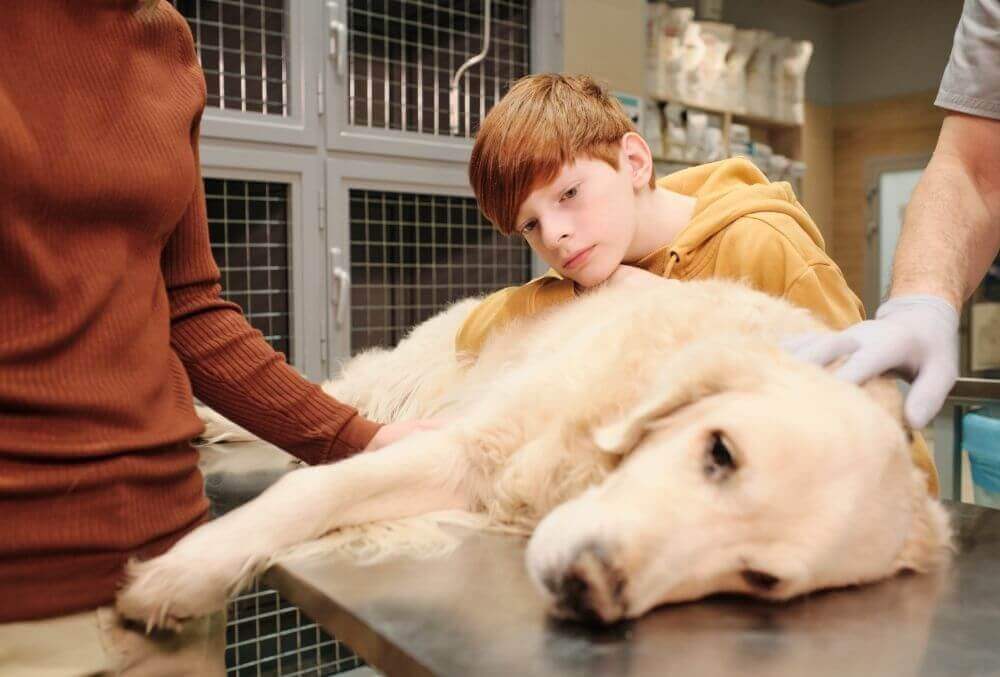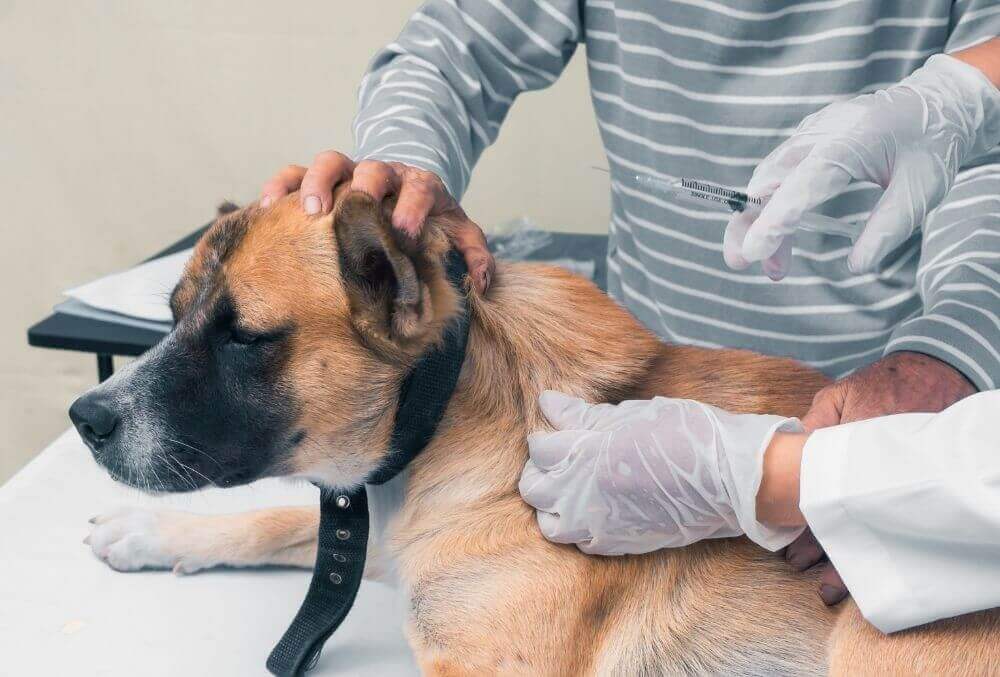Table of Contents
While most people know that rat poison is toxic to dogs, even a little dose of rat poison may kill a dog. So, what happens if a dog eats rat poison? Because rodenticide has an enticing flavor to dogs, keeping your pet away from it is critical.

How Is Rat Poison Made?
Rat poison is available in a variety of formulations. When a dog consumes an active substance, the harmful consequences vary. Because different forms of rat poison have different lethal levels, poisoning can happen in many ways.
Most rodenticides are based on grain or sugar, making them palatable to rats, dogs, cats, and other animals. They are available in pellets, blocks, granules, or liquids. Rat poison comes in various colors but is most teal, blue, green, or pink.
Rat poison’s color and form cannot be utilized to detect the active component (poison kind) employed. The only way to know which chemical is contained in the rat poison is to read the label.
Rat Poisons And Their Effect
Rodenticides are available in various formulations. Each has a unique set of harmful consequences and therapeutic options.
Anticoagulants
Anticoagulants are medications with an active substance of brodifacoum, bromadiolone, chlorophacinone, diphacinone, or warfarin. These are the most often swallowed rodenticides by dogs. These coagulants impair the body’s capability to recycle vitamin K. Vitamin K is for blood clotting. Internal bleeding happens throughout the body upon intake and finally kills the animal. The effects of this toxin may take between two and seven days to manifest.
Cholecalciferol
Consumption of cholecalciferol increases calcium levels in the body. Ingestion results in abrupt renal failure, cardiac irregularities, and death in the worst-case scenario. Symptoms of this toxin may not manifest themselves for up to 12 to 36 hours after intake.
Bromethalin
Bromethalin raises sodium concentration in the body’s cells, which results in an inflow of water into the cells. The cells enlarge and die, resulting in the animal’s death. This toxin can harm every organ in the body. The central nervous system is the most affected. If a tiny amount is ingested, signs of poisoning may show over one to two weeks. If a significant quantity is consumed, this toxin is lethal within minutes.
What Happens If A Dog Eats Rat Poison?
Lethargy
Lethargy is a typical symptom of rat poisoning. A lack of energy prevents dogs from moving and roaming around as regular dogs do.
Weakness/Collapsing
Another symptom that dogs exhibit after consuming a significant dose of rat poison is excessive weakness and collapse on the ground, motionless.
Breathing Difficulties
If dogs consume your bait laced with rat poison, you can see them catching their breath as they inhale and exhale, and their chests hardly move.
Coughing
Another observable sign of rat poison consumption is when dogs cough with or without blood. They may make noises from their throat as if they are choking or desire to vomit anything they have eaten. Apart from that, you may see some blood when they do this.
How to React If Your Dog Consumes Rat Poison
Bring your dog to the veterinarian immediately. If poisoning happened recently, your veterinarian would induce vomiting.
At home, do not induce vomiting unless told to do so by your veterinarian. Gather the following items before visiting the veterinarian’s office:
- Packaging for rodenticide products
- Any toxin that remains
- Details about the quantity of poison you believe your dog ingested and the intake date.
Treatment of Dogs Exposed to Rat Poison

If the vet believes the consumption was recent enough, they will induce vomiting first. The veterinarian may provide activated charcoal. Activated charcoal inhibits the absorption of poisons through the gastrointestinal system.
Your veterinarian may order diagnostic tests to check for poisoning symptoms in the blood. Depending on the time of ingestion and the quantity of poison consumed. Additionally, your veterinarian may need to offer different therapies to your dog.
Your dog may need hospitalization for specialized diagnostics and treatment in extreme instances. The prognosis is dependent on the chemical composition of the rat poison, the volume consumed, and the time after consumption. If the dog exhibits advanced indications of poisoning, the prognosis is terrible.
How to Prevent Poison Toxicity in Rats
The safe way to get rid of mice with pets is to keep rat poison away. But, your dog may be able to locate rat poison in other locations.
To avoid your dog ingesting rat poison that neighbors have left out near your house, keep an eye on him when he is outdoors. When you are not home, keep your dog indoors. Never let your dog run off-leash.
If you must use rat poison in your own home, never use it in a location accessible to your dog. Your unaccompanied dog should be kept in a secure place. Consider the danger before laying down rat poison. Dogs appear to be capable of locating rat poison on their own.
Bear in mind that your dog may swallow rat poison. Always call your veterinarian if your dog exhibits indications of disease.





